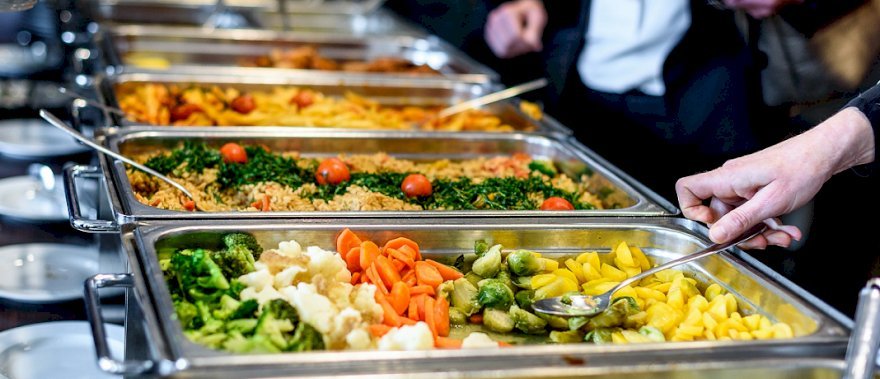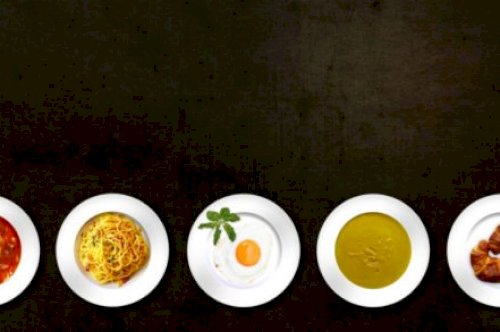What is the K factor in food?

A low- calorie diet focuses only on calorie or energy value in food. A Kapha or K value diet focuses on how the food gets digested, processed, and eliminated in the body without causing any adverse effects like bloating, constipation, slow metabolism, and weight gain. The higher the K Value the more likely it is to contribute in weight gain and digestion problems. It is a relative figure.
What is the K factor in food? According to ancient Indian or ayurvedic thinking the universe like us humans is made up of 5 elements ‐ water, earth, air, ether (space) and fire. Food too is made of these elements. No food has the same amounts of these – a combination of these elements makes different energies.
There are three energies or doshas: vata, pitta, and kapha.
• From the five elements the light elements – ether and air combine to form the vata energy. Foods such as fruit and salad fall in this category.
• Where one heavy and one relatively light element – fire and water – combine they form pitta energy foods.
• Where the heavy elements – water and earth – combine they form kapha energy or heavier foods. Kapha inherits the stability of the earth and water. Kapha foods therefore tend to be heavy and add weight – for example milk and bananas. As Kapha energy has the heavy elements we want to ideally eat low kapha foods when slimming. We have termed the amount of kapha energy in foods by the term K factor.
The lower the K factor in the food the better the food whilst slimming
Want to lose weight – eat low K value foods.
Eat excess K factor foods and if they are not burnt off they turn to fat soluble toxins – fatty tissue.
So what do you do if you eat a lot of the high K factor (K+) food – right side column below
This is how we can balance a meal energetically. Balance your meals with low K factor foods. These are in the green section below. So for example have a lamb kebab (K+) with a salad (K-) food.
How much of each?
How much of each is important, ideally to balance the ‘heavy’ red meat we need a lot of ‘light’ K-foods. Ideally you want to eat 50% salad and vegetables, 30% protein and 20% carbs. In the kebab roll, make sure you eat plenty of salad, some meat and lesser amount wheat naan or bread.
Is that it?
Nearly. To satisfy the 10,000 taste buds or so on our tongue we need to eat all 6 tastes- sugar, salt, sour, bitter, pungent and astringent. Generally, we only eat 4 out of the 6 tastes in foods. For more information read our blog What are the 6 tastes in food? We can get the other 2 tastes from salads or from spice mixes such as Kapha Spice Mix.
|
K apha or K – Foods to focus on |
Kapha or K + Foods to reduce |
|
VegetablesPungent and bitter foods such as:
asparagus, broccoli, brussels sprouts, cabbage, carrots, cauliflower, celery, eggplant, garlic, leafy green vegetables, lettuce, mushrooms, onions, peas, peppers, potatoes, radishes, spinach, sprouts |
Sweet and juicy vegetables,such as:
cucumbers, sweet potatoes, tomatoes, zucchini |
|
Fruits
apples, apricots, berries, cherries, cranberries, figs, peaches, pears, prunes, pomegranates, dried fruits (figs, prunes, raisins), coconut, fresh figs, grapefruit, oranges, papayas, plums Avoid sweet, sour, or very juicy fruits, in general. |
mangoes, bananas, avocados, dates, grapes, melons, pineapples |
|
Meat
chicken, fish, shrimp, turkey |
red meat, seafood in general |
|
Grains
barley, buckwheat, corn, millet, dry oats, dry rye, basmati rice |
cooked oats, pasta, rice, wheat, except in small amounts
Avoid hot cereals and steamed grains, in general, as they are too moist and heavy for kapha |
|
Dairy
goat’s milk, warm skim milk, small amounts of whole milk and eggs, unsalted butter |
butter, cheese, cow’s milk |
|
Beans
All legumes are acceptable generally |
kidney beans, tofu |
|
Oils
almond, corn, flax seed, sunflower (All in small quantities) |
coconut, olive, safflower, soy |
|
Sweeteners
raw, unheated honey |
all other than honey |
|
Nuts and Seeds
flax seeds, pumpkin seeds, sunflower seeds |
all others |
|
Herbs and Spices
all are good. Ginger is especially good for improving digestion |
salt |






